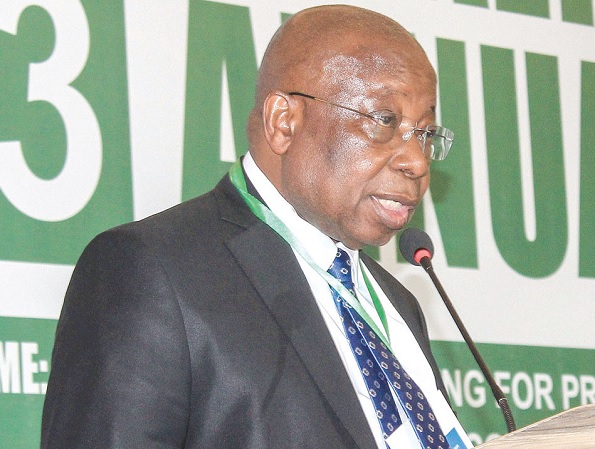Participants in this year’s national health summit have been urged to come up with suggestions on how the nation can mobilise funds domestically for sustainable healthcare financing.
The Minister of Health, Kwaku Agyeman-Manu, said such financing was key to delivering Universal Health Coverage by 2030.
“We believe that this commitment can be achieved through strategic investment in primary health care (PHC) programmes,” he said.
The three-day summit is on the theme: “Sustainable financing for primary health care (PHC) towards attainment of universal health coverage in Ghana: Role of stakeholders.”
The annual summit takes stock of the previous year’s national health sector performance, highlights its successes and challenges and charts the way forward.
Situation
According to Mr Agyeman-Manu, the country remained significantly below the lower-middle income countries’s (LMICs) average allocation of 2.3 per cent of Gross Domestic Product (GDP).
He said the proportion of the overall budget contributed by the government to the sector had remained relatively stable since 2017, hovering between 59 per cent and 62 per cent, except in 2021, when it reached 64 per cent.
“Donor funding has been less stable as it reached 17 per cent of the total budget for the health sector in 2017, before falling to just six per cent in 2020, and rebounded to 12 per cent in 2022.
“In this regard, one of the key resource mobilisation drives should be focusing more on domestic resources.
This space has a lot of low hanging fruits we can tap to finance our PHC,” the minister added.
Mr Agyeman-Manu, therefore, said there was the need to deepen engagement with local business entities who had well structured corporate social responsibility schemes to support the healthcare system.
“Similarly, we must strengthen our collaboration with other metropolitan, municipal and district assemblies under the Health-In-All policy principle of mobilising resources to address issues hindering the delivery of PHC in line with our national health policy,” he said.
Performance
The Chairperson of the National Vaccine Institute, Dr Anarfi Asamoa-Baah, scored the performance of the MoH and the health sector in general a “B” because of three occurrences which are — shortage of some critical childhood vaccines, the growing wave of brain drain of health workers and the astronomical hikes in the prices of medicines and diagnostic tests.
He, however, said that the sector had done well amid the challenges, because aside from still fighting COVID-19, the ministry had successfully managed some disease outbreaks such as Marburg, Monkey Pox, Polio, Lassa Fever and Yellow Fever.
Devt partners
A joint statement by development partners in the sector said a health financing strategic plan which would be presented at the summit would guide their work in supporting the country to actualise a sustainable domestic financing strategy, including ensuring equity in resource distribution, efficiency, transparency and accountability.
“We congratulate the government on the effort to make good co-financing GAVI commitments in 2022, but note that the same needs to be done for the Global Fund under this current grant, as well as for the upcoming grant 2024-2026.
“We also entreat the government to protect the National Health Insurance Scheme (NHIS) and prioritise sustainable domestic financing for procurement of health commodities and essential medicines,” the statement further added.

